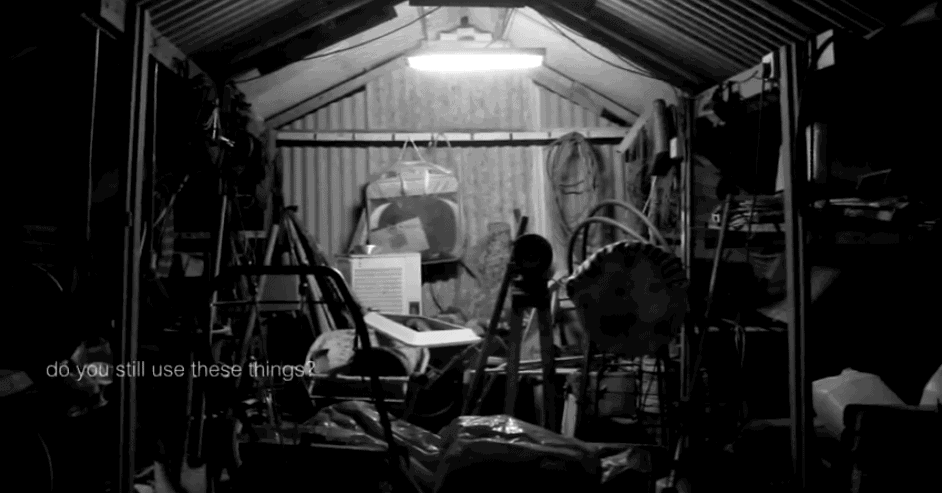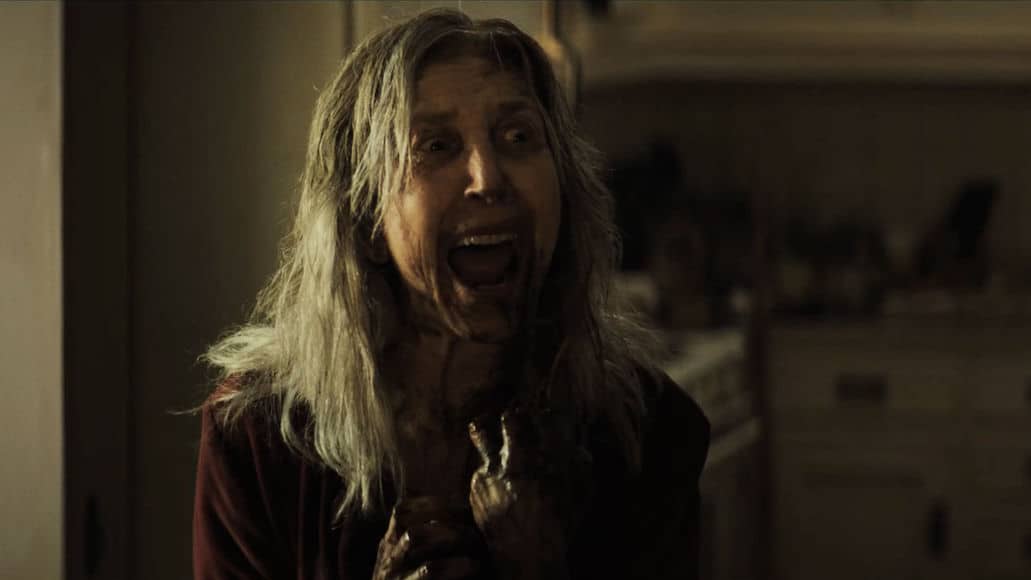By Wally Adams
“So….What's your favorite Takashi Miike movie?” Since Miike is one of the most prolific modern directors the world has ever seen as well as the fact he's worked in and at different junctures of his career focused on different genres (yakuza, horror/fantasy, neo-jidaigeki and manga adaptations) and even different mediums (TV, V-cinema, mainstream films, art films), one is very unlikely to find any smooth consensus for that question. But there are popular choices among different film demographics: the closest thing to a universal critical favorite is “Audition” though it still thoroughly turns more than a few off, or more recently “13 Assassins“. Even more acquired tastes are exploitation audience favorites “Ichi the Killer” and “Dead or Alive”. Mainstream audiences in Japan actually best remember mega-hit movies that capitalized on (then) big trends like the cell phone horror movie “One Missed Call” or the idol-fueled “Andromedia” marking the Digital Age. But art film and major festival audiences showed a preference towards “Hara-Kiri” and even the otherwise obscure “Shield of Straw”, which were the closest Miike ever came to winning one of the world's top film festival prizes at Cannes. And perhaps the most unpredictable of all prominent tastes is that of the director himself, who once cited 1998's “Young Thugs: Nostalgia” as his favorite before more recently choosing 2017's “Blade of the Immortal”. So opinions are like certain objects/other body parts being shoved into people's *ssholes: many Miike movies tend to have them form in different ways for different people.
Therefore, it's inevitable that a considerably larger amount of his films would be lost in the shuffle (some frankly deservedly so). On that note, one film you're very unlikely to find on any favorite or most notable lists in acclaim or success no matter which kind of source is “Zebraman”. Quite mildly successful when it came out just cracking the domestic top 30 for its year's box office (top 90 altogether), it also tended to receive either lightly praising or lightly dismissive critical reviews with a select few showing anything close to passion either way (and having some Western critics misinterpret the movie altogether in thinking it was just targeted towards otaku). Why? The plot itself shows part of the answer.
Primary schoolteacher Shinichi Ichikawa (“Show” Aikawa as his Romaji name is spelled) is an all-around loser at school. His colleagues think lowly of him while his students don't respect him, make fun of him and make his son at the same school the special target of their collective ijime. The only place Ichikawa has a different experience is at home, where he's an even bigger loser. His unhappy wife ignores him in favor of her paramour, his depressed son Kazuki won't even talk to him as he blames daddy for the intense bullying, and his teenage daughter Midori (Yui Ishikawa, Nana) is contemptuous and delinquent to the point of moonlighting in compensated dating for an old man. And all of the above scoff at the idea of him having any authority as head of the house. Shinichi's only respite from it all is pretending to be a superhero in his makeshift costume of “Zebraman” — the title hero of a fictional-within-fictional short-lived 1970s tokusatsu show. Or at least that would be full respite if not for all his bumbling accidents in it. But then he finally finds someone he can connect with in wheelchair-bound transfer student Shinpei Asano (Naoki Yasukochi), who's similarly made a social outcast if for different reasons and remarkably also a big fan of Zebraman though it came out before he was born. Perhaps also in Shinpei's mother, single parent Kana (Kyoka Suzuki) as Shinichi might as well also be invisible in his family anyway.
By the way, the dirty old man paying Shinichi's daughter happens to have an alter-ego of his own (though far less heroic): as Kitahara the Crab Man, suspected of a series of rapes on the streets at night, but not other aspects of the same town's upsurge in crime. He and other criminals seem to have some kind of connection to strange green ooze found at many of the crime scenes that are mostly situated around the Ichikawa and Asano families' school. But Shinichi with some degree of newfound confidence starts taking his Zebraman costume increasingly seriously as he prowls the streets (for lack of better choice of words as zebras are vegetarian) for such criminals — even while staying fully conscious of how it looks and sounds to the point to trying to avoid civilians even seeing him masked in it. But as much to his own shock as anyone else's, he turns out to have potential to be a formidable superhero, as the costume all on its own seems to have real horsepower!
It's easy to forget with all Miike has put out since then, but “Zebraman” was actually his first family feature film, which would be followed by several other bigger budget and more popular ones. OK, this couldn't quite be considered a “family” movie by most Western standards, as more than a few would take serious issue with the angles about Midori engaging in enjo-kōsai/prostitution and for a superhero, the inordinate amount of criminals he's faced with who for some reason happen to be perverts rather than bank robbers/muggers/etc though it's all only lightly alluded to. But it definitely appeals to kids in its general concept, characters and story. At the same time however, “Zebraman” directly appeals to adults in equal measure, and in something deeper than the sprinkled sexual allusions and nostalgic references to past entertainment. Some parts even cleverly act as “kid” and “adult” material simultaneously, as with a hilarious scene of Shinichi fantasizing about Kana coming to his erotic rescue from a giant monster as “Zebranurse.”
And that's the clear edge this movie has over most of Miike's many later efforts at family entertainment that would follow and that seem to just keep escalating in puerility. They'd go from more cutely tackling Japanese tradition in 2006's “Great Yokai War” to shamelessly asinine by 2011's “Ninja Kids” to intolerably mawkish outside its intended demographic with his current cash cow, the idol singer/magical girl/tokusatsu series “Girls X Heroine!” now on its third season.
But “Zebraman” deftly balances its outwardly dominant comedic nature with just enough underlying seriousness and genuine action to simultaneously provide sufficient superhero entertainment and drama while acting as a parody of the very kind of entertainment it's providing. Aside from actual fans of the genre, many remembering tokusatsu well enough including if they just watched it as kids or even if they ridiculed it (I fell somewhere in between, watching as a child but already feeling a certain sense of kitsch in it that nonetheless briefly hooked me) must have some feeling of ambivalently embarrassing nostalgia. Maybe at watching (just choose your own personal example) Ultraman fighting a sumo wrestling tree, Kikaider battling “Rogue Jellyfish” with his “Jellyfish Sword”, or even in the West the Power Rangers (as they used the exact same battle scene footage as its “Super Sentai” source anyway) battling a giant chicken that performs flying dropkicks. They can best appreciate the way “Zebraman” pokes gentle and even tributary fun at the absurdity of it all. That's also evident in the theme song Zeburaman, Zeburaman, shirokuro tsukero! (“Zebraman, Zebraman, turn on the black & white!”), sung by tokusatsu theme stalwart Ichirō Mizuki, who's done somewhere around a thousand such songs mostly for live action and anime tokusatsu shows; his presence is yet another reflection of the deceptively intricate amount of heart and effort put into the project.
Still, the film wouldn't have worked nearly as well if not for the leads: Aikawa's comic timing for the deadpan humor that belies the ludicrous happenings and his understated chemistry with Suzuki, who stays delightfully poker-faced upon Shinichi's every heroic feat and embarrassing bumble alike. Together in their best scenes (in combination with Miike's direction and let's not forget famed screenwriter Kankuro Kudo's script), they create an almost Beat Takeshi-esque thoughtful dissonance between the seriousness of the characters and humor of the situations, albeit in far more fantastical settings. Former model Ishikawa, despite her small role, makes quite the impudent sultry schoolgirl with sufficient playfulness and artifice to avoid making the viewer who didn't come for pink or perv cinema feel too guilty. Even the two child actors do quite well. There is one fairly major drawback in the main antagonistic force neither being as convincing nor having quite as potent of special effects as it could (especially when noting some other Miike films even by 2006 had better), but there's still fun to be had there with a decent final battle and a comically absurd explanation as to why and how that force decided to attack humanity.
So back to the original topic about general evaluation and consensus for the director; if you've never seen anyone call “Zebraman” one of his favorite Miike movies before as I haven't, now you've seen one dare to without hesitation, and the single favorite of the 21st century. Also among the best of many Japanese superhero films since “Super Giants/Starman” got that ball rolling over 60 years ago. Because “Zebraman” is overall one of Miike's most cohesive films with a clear and cogent message that does exactly the things it set out to do and well — all the more remarkable for the diverging demographics it appeals to. This is also one of very few Miike films (especially when excluding yakuza ones) that actually came up from scratch, not adapted from any source material. Nearly all other films major and minor came from other past or foreign movies (“13 Assassins”, “Happiness of the Katakuris”), novels (“Audition”, “One Missed Call”), manga (“Ichi the Killer” and the vast majority of his films from the last decade) or the odd other source like videogames and stage plays. So this film's aptly zebra-like organic status (which in fact inspired a manga itself) makes it yet more commendable.
Finally and perhaps most easily missed, notice that this is one of Miike's most genuinely Japanese films, illustrated in everything from the story rooted in tokusatsu and how its industry worked to the very particular familial and societal problems the characters are faced with — the core theme being the protagonist's impending hikikomori-ism and his Zebraman costume's initial reflection of that, plus both of the lead families being wracked by ijime, enjo-kōsai and/or suicide. But even under the weight of all its pretty serious underlying themes and lighthearted satirical absurdity that operate almost like a yin and yang towards each other, “Zebraman” really is at heart a fun nostalgic superhero entertainer that for most should probably just be taken as such.
Either way, “Zebraman's” more universal “never too late to dream” message even via very genre and society-specific mediums provides refreshing throwback to simpler, more innocent days in an individual's life, family units, society and even tokusatsu before a “Kamen Rider” actor (Tsunenori Aoki) could get arrested for going on a drunken public groping spree or multiple “Power Rangers” actors get arrested for class-A felonies. So as Shinichi himself puts it, “Zebraman is about more than a superhero” — it's about paying loving tribute to one of the most unlikely export global phenomenons there ever was (and yes, it was a global phenomenon, as literally almost every major country in the world had at least one full-on sensation from the genre whether it was “Ultraman” in much of Asia, “Power Rangers” in the West, “Space Wolf Juspion” in Brazil or original localized film & TV like “The Super Inframan” from Shaw Brothers). It's about the general carefree and imaginative spirit of childhood symbolized in the hero. It's about building and regaining confidence in a life or society that seems set against you!…..And yes — it's about a fool running around in a zebra suit.
















